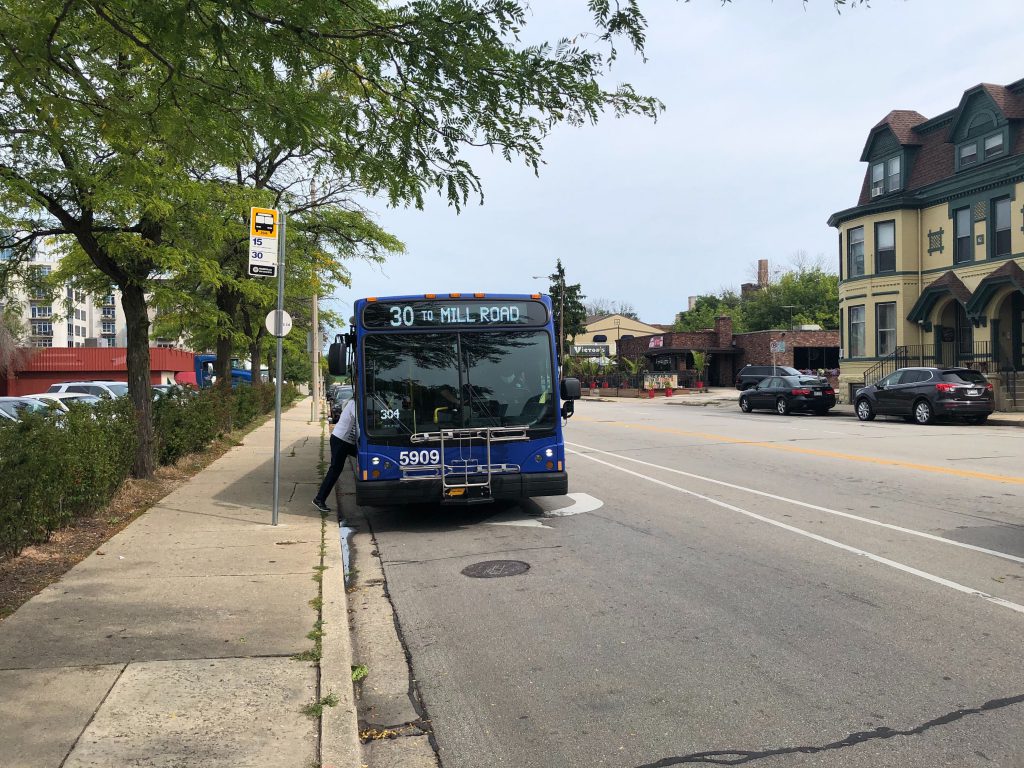How to Measure Transportation Insecurity
All the city news you can use.
Every day at The Overhead Wire we sort through over 1,500 news items about cities and share the best ones with our email list. At the end of the week, we take some of the most popular stories and share them with Urban Milwaukee readers. They are national (or international) links, sometimes entertaining and sometimes absurd, but hopefully useful.
Looking deeper into transport insecurity: Researchers from the University of Michigan have developed a transportation insecurity checklist similar to one used for food insecurity. Transport insecurity, an inability to move freely because of a lack of resources, is not something a lot of policy makers pay attention to because while we have data on journey to work, we don’t know whether people were fired because they lacked transportation access. (Amanda Merck | Salud America)
Spatial racism beyond redlining: Spatial racism is more than a set of older redlining maps, it’s been embedded in institutions over a long period of time. As such, the history of discrimination must be understood in greater detail before new practices are further embedded in digital systems. As an example, block busting not redlining is tied to reduced food access today in Baltimore while subprime mortgage loans in Detroit are tied to reverse redlining practices of banks during the great recession. (Alex Hill | Metropolitics)
Where are our public bathrooms?: The pandemic reminds those living in the United States as well as those visiting from other countries that what many considered public bathrooms, those in department stores, bars, or restaurants, are not public and shouldn’t be counted as such. Elizabeth Yuko takes a look at the history of public restrooms in the United States and wonders what is keeping us from providing something so basic for all. (Elizabeth Yuko | Bloomberg CityLab)
Artificial intelligence and city design: New use cases for artificial intelligence are popping up in the urban design and planning world. As more programs are developed to reduce the time it takes to plan or design different scenarios, there is a question about whether they are biased or fair. While they might be beneficial in pure calculations of performance criteria, researchers believe they are likely to be lacking in areas where value judgements represent community agreement. (Stephen Cousins | Engineering and Technology)
Quote of the Week
One thing I would want to make clear is that inclusionary zoning is not adequate. Inclusionary zoning is a policy designed exclusively for new construction. And it really is limited in terms of its applicability because the vast majority of housing is not new construction. There has to be a mechanism to encourage municipalities to address the citywide housing situation, not just new construction.
–Yonah Freemark in Shelterforce discussing his research on France’s Urban Solidarity and Renewal law that supports social housing.
This week on the podcast we’re joined by Kenneth O’Reilly to talk about his book Asphalt: A History.
Want more links to read? Visit The Overhead Wire and signup.
Urban Reads
-
How Traffic Noise Impacts Children’s Brains
 Jul 1st, 2024 by Jeff Wood
Jul 1st, 2024 by Jeff Wood
-
Number of Super Commuters is Rising
 Jun 22nd, 2024 by Jeff Wood
Jun 22nd, 2024 by Jeff Wood
-
Why Has the Walkable City Been Villainized?
 Jun 9th, 2024 by Jeff Wood
Jun 9th, 2024 by Jeff Wood





















